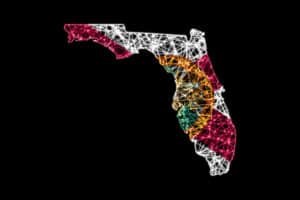Indiana Lawmakers Push Medicaid Reforms, Address Waitlists and Caregiver Services
House committee advances key bills impacting Medicaid funding and access

February 10, 2025 – Indiana lawmakers are moving forward with key Medicaid reforms, addressing caregiver payments, waitlists, and payment delays under the PathWays for Aging program. Several bills advanced in the House on Tuesday, signaling a potential shift in policy under Gov. Mike Braun.
House Bill 1003 aims to reduce health care costs while addressing site-of-service regulations. House Bill 1689 revisits payments for parents caring for children with severe medical needs, and House Bill 1592 seeks to prevent the state from imposing Medicaid waitlists if waiver slots are available.
Restoring Caregiver Payments
In late 2023, Indiana’s Family and Social Services Administration (FSSA) cut Medicaid costs by eliminating payments to parents serving as caregivers and implementing waitlists. Officials estimated the move would save $300 million.
House Bill 1689 initially required FSSA to seek federal approval to reinstate caregiver payments, but an amendment removed that mandate. Instead, lawmakers and FSSA will continue discussions on applying for a waiver to allow these payments.
The bill also introduces new oversight measures and requires FSSA to study home- and community-based care options, including creating a “complex care assistant” role to allow family members to be paid caregivers.
Eliminating Medicaid Waitlists
House Bill 1592, which seeks to eliminate Medicaid waitlists, carries a much higher cost. Currently, Indiana limits Medicaid slots based on budget constraints. The bill would require FSSA to use all available slots and apply for more if needed.
The waitlists have left over 10,000 elderly and disabled Hoosiers without critical services like in-home care and assisted living. Some long-term care providers, such as Silver Birch, have taken in seniors early, unable to ignore urgent needs.
Providers warn they cannot sustain charity care indefinitely, and delays in services often lead to more costly hospitalizations.
Addressing Payment Delays in Senior Care
Indiana’s managed care system for seniors under the PathWays for Aging program has also come under scrutiny. Launched in July 2024, the program relies on private insurers to oversee Medicaid services, but providers report months-long payment delays.
Paul Peaper, president of the Indiana Health Care Association, warned that unpaid claims now exceed $100 million. Before PathWays, providers were paid within a week.
“If reforms aren’t made, we’ll have fewer providers in five years than we do today,” Peaper said.
American Senior Communities, the state’s largest long-term care provider, has hired extra staff to track unpaid claims. One facility reported a $40,000 outstanding balance for a single resident.
What’s Next for Medicaid Reform?
Despite House approval, the waitlist elimination bill faces financial scrutiny and must pass the House Ways and Means Committee before reaching the Senate. Meanwhile, Senate Republicans have introduced a separate bill that could cap Medicaid enrollment for moderate-income adults, potentially creating another waitlist.
With Indiana’s senior population expected to grow significantly by 2030, lawmakers must balance financial constraints with increasing Medicaid demands.
The VBP Blog is a comprehensive resource for all things related to value-based payments. Up-to-date news, informative webinars, and relevant blogs in the VBP sphere to help your organization find success.
Get the VBP Blog For FREE
Are you looking for insider access to our expert Value-Based Payment insights?
Subscribe now to get trending topics and tips sent directly to your inbox.





